This blog post has been updated to reflect the current status of H.R. 1808 – Assault Weapons Ban of 2022.
Gun violence continues to be a major public health crisis across the country with the rise of mass shootings. There were more than 600 mass shooting events that took place in 2022 alone, and 2023 is so far unfortunately following the same trend, with an astonishing 36 mass shootings having already taken place across the country. In fact, over the past weekend, two mass shootings occurred, including an incident in Monterey Park, California that left 10 people dead, and a separate shooting at a night club in Louisiana resulting in numerous serious injuries.
The 2022 Midterm Voter Election Poll made clear that voters want Congress to address mass shootings and support a host of public policies aimed at addressing gun violence. When asked to identify the most important issues that they want Congress and the President to address, 17% of voters identified “mass shootings and gun policy” as one of their top priorities. Mass shootings were sixth among all priorities mentioned by voters, coming in higher than education or immigration. Mass shootings and gun policy are a high priority for voters regardless of whether they live in rural, suburban, or small or large urban areas of the country—voters from all geographical areas named gun policy as a key priority at either 16% or 17%.
Although gun violence and mass shootings are a high priority for voters across all demographic groups, younger voters are more likely to view mass shootings and gun policy as a priority for Congress relative to older Americans across all racial groups. For example, a fourth (24%) of Latino and Black voters in the 18 to 29-year-old range found gun violence to be the most important issue for Congress to address, which is a higher share than older voters from these same communities.
The significance of gun violence among young adults is indicative of the generation that grew up in a challenging era in the United States where mass shooting events have been far too common, requiring regular mass shooting drills in schools to be employed. Young voters who prioritize gun policy reform are exasperated by the lack of movement from Congress to address gun violence in this country. They have since taken the matter into their own hands and have come together to create organizations aimed at gun violence prevention, with the most notable being March For Our Lives and Students Demand Action.
Race is also an important source of variation for voters when it comes to prioritizing mass shootings and gun violence as a policy issue. Mass shootings were particularly salient for voters from Latino, Black, and Asian-American communities, each of which ranked this issue fourth across policy priorities, just behind economic oriented issues and access to abortion and reproductive health.
This is likely a product of greater experience with mass shootings and gun violence among these communities. For example, a recent survey of Latino families with children between the ages of zero and five conducted by Abriendos Puertas found that nearly a fifth (18%) of Latino parents or their children have personally experienced gun violence at school or another public place. Given the surprisingly high rate of exposure to gun violence among Latino families, greater concern about mass shootings and gun violence among Latinos is unsurprising. As reflected in the figure below, over 80% of Latino parents are concerned that their child could be a victim of a mass shooting at some point in their life—with 62% admitting that they felt extremely concerned. This helps explain why two thirds of Latino parents believe it is very important that policymakers in their state “take more aggressive steps to address mass shootings.”
Latino parents are much more likely (+31%) to believe that laws covering the sale of guns in their state should be stricter than to believe that people should be able to own firearms without limit or restriction. Nearly all survey respondents who believe there should be mandatory universal background checks for all firearms sales and that there should be a 10-day waiting period to purchase a firearm.
Regarding policy preferences, 68% of all 2022 voters support banning AR-15 style rifles. Similar to issue salience, there are significant differences based on race on this item. As reflected in the figure below, support for banning assault rifles is much higher among Black, Asian-American, and Latino voters. At 64% respectively, support for banning AR-15 style rifles nationwide is supported by a strong majority of both white and Native American voters as well.
Support for banning AR-15 style rifles varies by where voters live. Support is significantly higher in large urban areas, with 82% of voters who live in large cities expressing support for banning AR-15 rifles, compared to 70% of suburban residents and 59% of residents of small towns. Voters who live in rural areas are less likely to support banning AR-15 style rifles nationwide at 47% support.
Federal and State Level Policy Interventions are Needed Now to Address Escalating Gun Violence
Banning assault rifles like AR-15s is a policy intervention being considered across the country. For example, at the federal level, Representative Cicilline (D-R.I.) introduced H.R.1808, the Assault Weapons Ban, in March of 2021. The bill The bill was passed by the House in the summer of 2022 but was not given a vote in the Senate during the 117th Congress.. At the state level, eight states (California, Connecticut, Delaware, Hawaii, Maryland, Massachusetts, New Jersey, and New York), as well as the District of Columbia, have laws that generally ban the sale, manufacture, and transfer of assault weapons within their borders. However, there are active attempts to block this type of legislation. This includes gun rights activists in Maryland who have submitted a second filing with the Fourth U.S. Circuit Court of Appeals against the assault weapons ban in their state considering the Supreme Court’s decision in New York State Rifle & Pistol Association Inc. v. Bruen. This decision opens up the door for challenges to the constitutionality of these bans, which may prove to be problematic for the future of H.R.1808.
The Biden administration has plans to implement long-term strategies aimed at addressing the root causes of gun violence, including community violence intervention programs . These programs will take time to combat gun violence, so more immediate policy interventions will be needed to address the growing demand among the public to address mass shootings, which have skyrocketed over the past two years.
The survey data referenced herein was produced independently by a third-party firm, BSP Research on behalf of the African American Research Collaborative. Outside of his work at Brookings, Dr. Gabriel Sanchez serves as Director of Research for BSP Research and was part of the group of scholars who designed and implemented this survey.
The Brookings Institution is committed to quality, independence, and impact.
We are supported by a diverse array of funders. In line with our values and policies, each Brookings publication represents the sole views of its author(s).
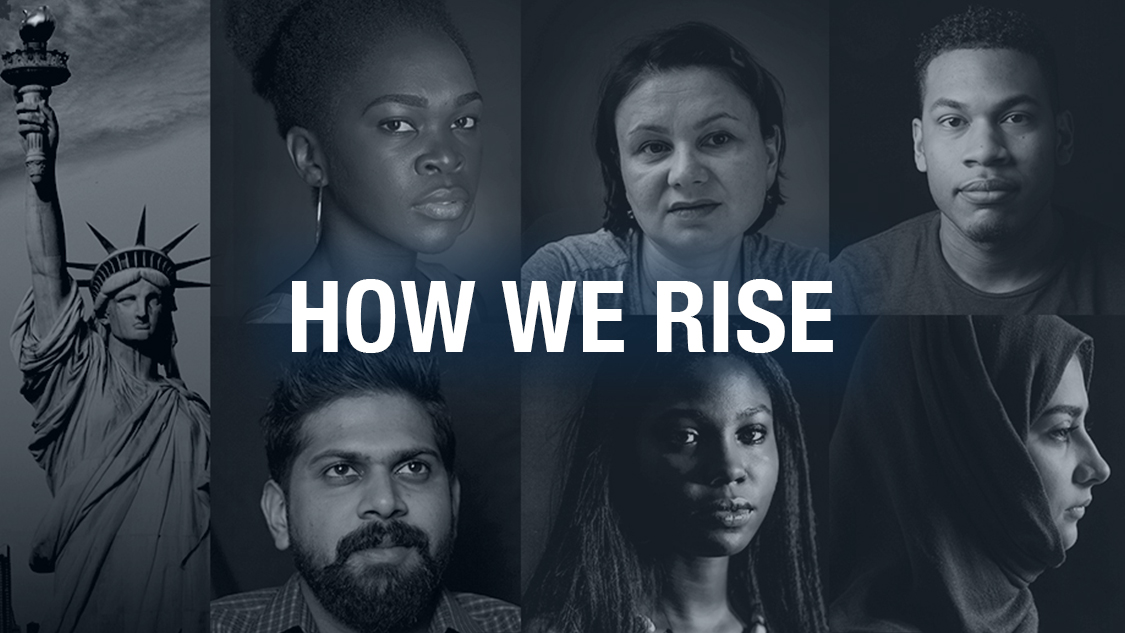



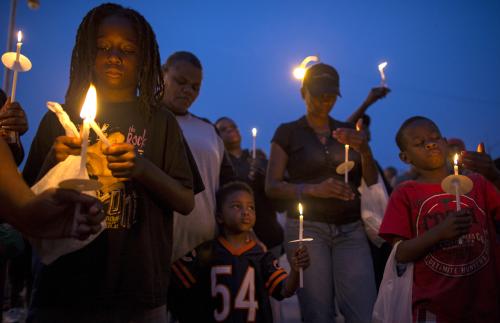

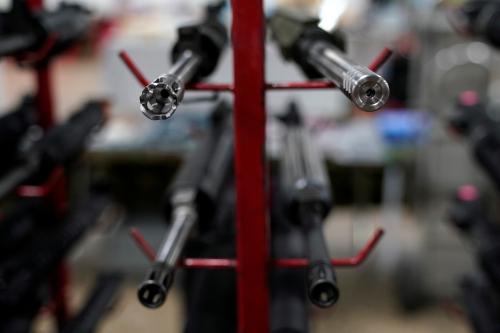
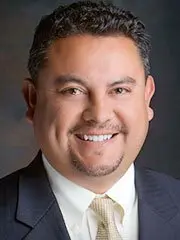



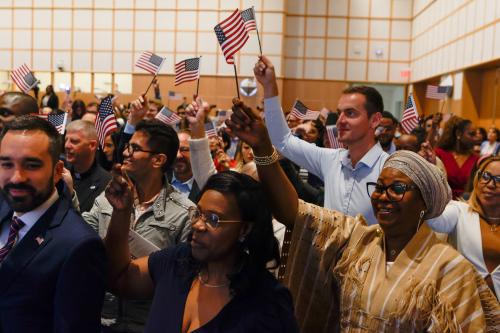
Commentary
Voters want Congress to address gun violence and mass shootings
January 23, 2023